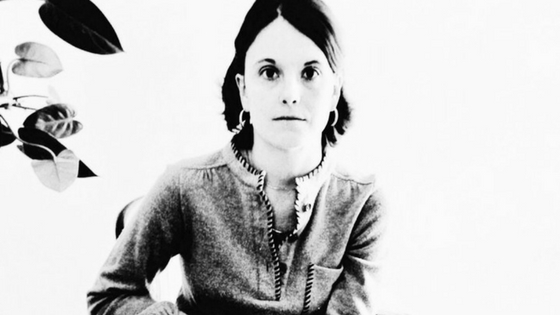Elle is French for “She”

By Emily Keeling
In honor of Women’s History Month this March, Emily Keeling, founder of Elle Studio + Wellness, looks to her mother in her effort to help other women.
“She” is my mother. A woman raised in the 1950s without a mother. Bouncing from home to home with an alcoholic father who divorced and remarried three times. Back then, there were no support groups for children of alcoholics or mothers gone from cancer. In one of the homes she lived in on the south side of Chicago, there was a burned out tree with foot holes carved into the trunk. She used to hide out in it, run away to it and call it “mother.” She would tell her sorrows to the tree, talk about how unfair it was that her mother had died and that she had to live with an uncaring stepmother.
A woman forced to become an adult and make sense of threats to her survival by the age of eight will have that quality instilled in her for the rest of her life. To be raised under these circumstances and go on to build and maintain a forty-four year marriage with a strongly bonded family unit of two children, who adored her, as well as a successful and industrious career, is a feat. I was always in awe of her.
My mother shaped my concept of “she”. Coming of age during the second wave of the feminist movement, my mother was a feminist in the sense that she had way too much potential to be put into the “other” category. That she should be pushed aside to make room for a man or anyone else for that matter was laughable. When told to pursue traditional female jobs of secretary or librarian, or told to give up her career now that she was having children, she simply let that advice fall on deaf ears.
Never given a sense of security other than what she gave to herself, she was driven by the sheer desire to survive. When she had succeeded in getting her basic needs met, she then sought validation. Anyone who doubted her, abandoned her, or attempted to discredit her, triggered the wounds of her childhood. No longer a helpless child, but a resourceful adult, she strove through her accomplishments to heal her wounds—an indefinite battle. This mindset is what made my mother strong, for in this way, she never stopped sharpening her tools—which took the form of hard work, social intelligence, and wit.
Like any mother, she didn’t want me, her child, to suffer—an unrealistic expectation of a human life—but one at which she actually succeeded at rather well until her death. When the oncologist confirmed that her cancer had spread beyond her ability to fight it, she apologized to me, saying, “I wanted you to have the perfect life.” What we hadn’t realized was that in all the years I spent observing her and listening to how she perceived the world, she had taught me how to suffer well.
In the depths of grieving her loss, I knew that if I were to do right by her, I would not do anything that would undermine my well-being. I would instead attend to my family and my career. I would seek to fulfill my passion and full potential, which as a therapist, has always been to help women. Any advice I received about this not being the right time to start a business, I ignored. Anyone who doubted my vision, or who doubted me, just further emboldened my conviction. Through emulating the most important woman in my life and creating Elle, I believe even more women will overcome obstacles and pursue their full potential. For in the stories of great women, there is always triumph.
—
Do you have a story of an inspiring woman that you can share with us? Maybe your own mother or a different woman whose influence has touched your life? We’d love to hear it, and—with your permission—share stories of other inspiring women all month long. Share your story with us here.


Comments are closed.